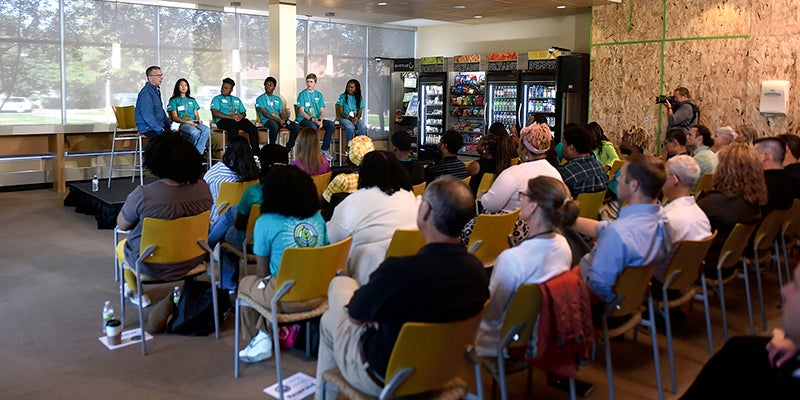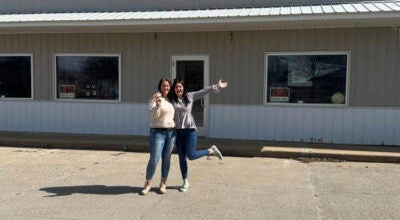Researchers hit Institute for three-day conference
Published 10:31 am Thursday, September 22, 2016

- Researches gathered this week for a conference at The Hormel Institute which started Wednesday. Photo provided
The Hormel Institute, University of Minnesota welcomed skin cancer researchers from around the world for a three-day conference that started Wednesday.
The Hormel Institute is hosting the 12th International Skin Carcinogenesis Conference, which is co-chaired by Institute Executive Director Dr. Zigang Dong.
The conference, held every two years, focuses on new and innovative research related to skin cancer development, prevention and control.
Advances in molecular, cellular, and computational biology, as well as newer technologies, continue to allow scientists to better understand the way normal cells become cancer cells.
This year’s conference will be held in the new Ray Live Learning Center, the global communications facility completed in June. Over 100 scientists will gather in the auditorium for presentations, and the multi-purpose event room will be used for poster sessions and meetings.
“It is a great honor to welcome scientists here to Austin and to The Hormel Institute,” Dong said in a press release. “We are extremely thankful for our beautiful facility with its technologies that make it possible to hold conferences such as this in. This prestigious conference brings together some of the leading cancer researchers to further our understanding of skin cancer, the most prevalent cancer there is.”
Throughout the conference, scientists will share research, foster discussion, and learn about new technology and techniques. Topics such as molecular mechanisms, risk stratification, and clinical intervention will be discussed.
The symposium showcases 28 speakers split into 10 sessions. Of the twenty-eight speakers, four are faculty from The Hormel Institute: Dong, Dr. Ann M. Bode, Dr. Rebecca Morris and Dr. James Robinson. Each will present research related to skin cancer discovered/or developed from their lab at the Institute.
Thursday’s poster session will feature displays where scientists showcase their research. This format allows more scientists to share research collaboratively through discussion in a more informal setting, designed to further and inspire innovative thinking. The Hormel Institute has four labs displaying posters during the conference.
Visiting scientists come from as far as Glasgow, Scotland and institutions throughout the United States such as Columbia University, National Cancer Institute, Food and Drug Administration and Penn State. Scientists will also enjoy local attractions, including tours of the Spam Museum and Hormel Historic Home. As part of Austin’s first “Welcome Week,” a national initiative to foster inclusiveness and diversity, The Hormel Institute’s scientists from Argentina, China, England, India, Russia, South Korea, Sweden and other countries will welcome conference attendees.





